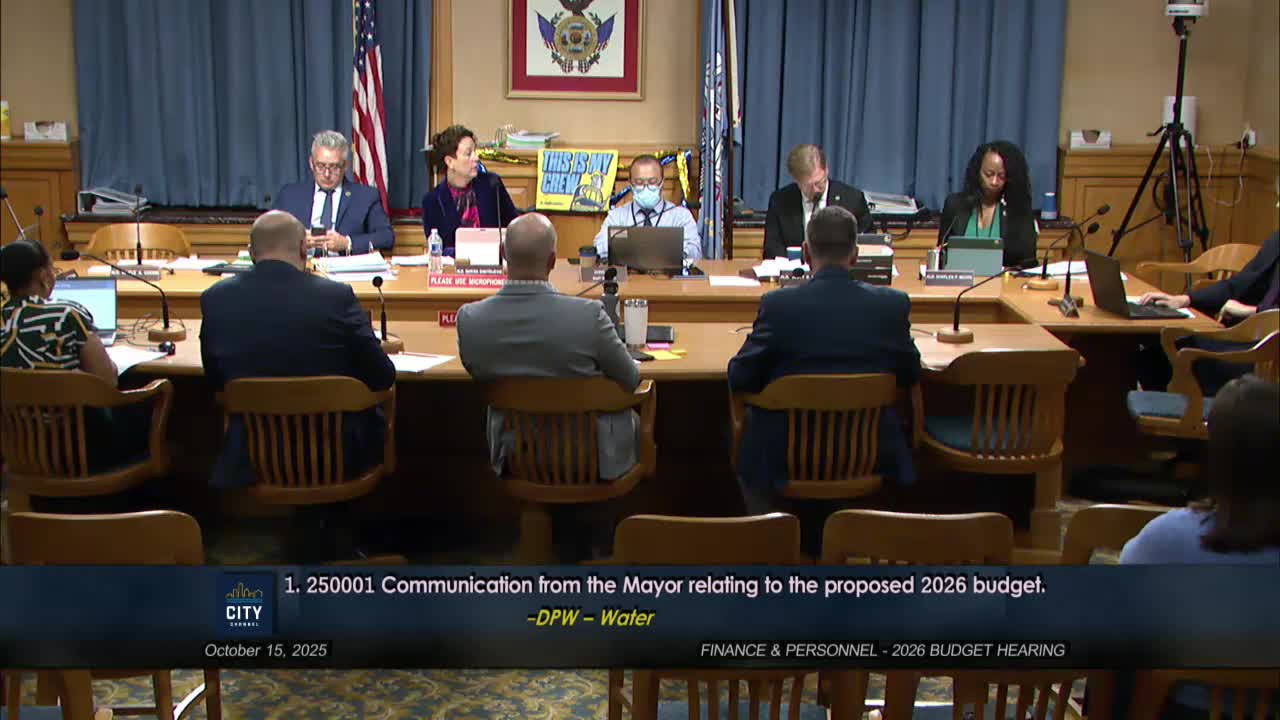Milwaukee Municipal Court shifts intervention services in‑house and pilots library‑based virtual access; court lays groundwork for AI tools
Get AI-powered insights, summaries, and transcripts
Subscribe
Summary
Milwaukee Municipal Court proposed a 2026 operating budget that cuts professional services and moves court intervention work from a contract to an in‑house pilot. The court said it will hire a small team to manage referrals and case‑monitoring and is preparing internal oversight for limited AI use and for a library‑Zoom pilot to improve access.
Milwaukee Municipal Court leaders told the Finance and Personnel Committee they will reduce outside professional‑service spending and attempt to operate an intervention/alternative‑services program in‑house in 2026 after a multi‑year contract with a private provider concluded in 2025.
Chief court administrator T. Norfolk presented the proposed court budget and described a plan to stand up an in‑house court alternative services program. Norfolk said the court will hire a small team — "1 court social worker, 2 court case workers, and 1 office assistant" — to intake clients, coordinate treatment referrals, monitor compliance and report back to the court.
Why it matters: The municipal court’s intervention contract with an outside provider had previously handled case management and referrals. The court said bringing the service in‑house will reduce costs and give judges and administrators more direct control over referrals and follow‑up for persons with court cases who also have substance‑use, mental‑health or housing needs.
Program details and budgeting - The court reported the prior contract (Justice Point) cost roughly $487,000; the 2026 proposed plan budgets roughly $243,500 in the special purpose account and proposes using in‑house staff and temporary hires to stand up the program in the near term. - Norfolk said temps will be used immediately while the court recruits the permanent positions; the court will seek carryover from the special‑purpose account to cover early hiring until position authority is permanently placed in the 2027 budget, if necessary. - The court intends to focus on post‑adjudication referrals and case management (not pre‑charge diversion): services include intake/assessment, case management, treatment referrals, community‑service options and DOT/driver‑license recovery assistance.
Access innovations - Library‑based remote access: the court piloted a program that allows defendants to reserve private rooms and computers at four Milwaukee Public Library branches to attend virtual hearings; Norfolk said the pilot was small but useful and will be continued. - AI governance and use: court IT manager Tim Richter described a phased approach to technology. Court staff currently use commercial generative AI (ChatGPT, Gemini, Claude) for productivity and research. The court is developing a formal request and oversight process for AI use that requires IT review and a city AI policy acknowledgement. Richter said the court is exploring the next step—narrow, task‑specific AI “agents” that could safely handle routine tasks such as a court website chatbot or automated quality checks of filings, with any legal decisions retained by human staff.
Operational and legal notes - The court’s caseload mix remains weighted toward traffic citations and municipal ordinance cases; magistrates and judges preside under judicial direction from the First Judicial District. Norfolk noted the presiding municipal judge (Valerie Hill) met individually with aldermen before the budget hearings and conveyed support for the in‑house pilot. - The court also recommended replacing aging case‑management software and included capital borrowing in the 2026 request to modernize e‑filing, public portals and evidence handling.
Next steps Committee members asked the court for performance metrics and clearer cost comparisons between the contract model and the in‑house option (referrals completed, recidivism, cost per client). The court agreed to provide a written set of metrics and a timeline for pilot staffing and implementation.
